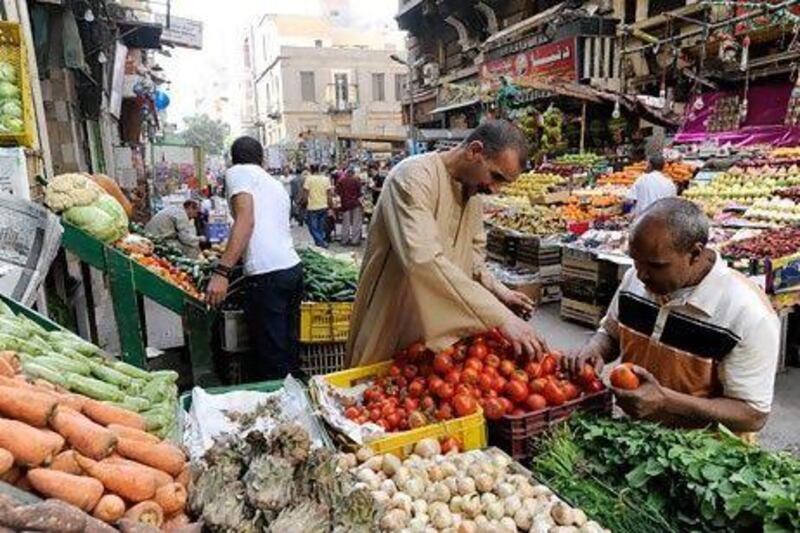Egypt is to receive a US$1 billion (Dh3.67bn) loan to finance energy and food imports after signing a deal with the Islamic Development Bank (IDB) yesterday.
The deal between the IDB's International Islamic Trade Finance Corporation and the government comes as attention focuses on how the new president, Mohammed Morsi, gets to grips with arresting Egypt's economic slide.
"It's a key area of concern for Egypt and rising costs of food and fuel are putting pressure on the import bill at a time when income from tourism, FDI [Foreign Direct Invesment] and other areas is down, creating external pressure on the currency," said Liz Martins, the senior economist at HSBC Middle East.
Food and fuel imports are two of the biggest drains on government finances.
Subsidies already eat up as much as 28 per cent of Egypt's 476bn-pound (Dh288.57bn) budget.
Almost two-thirds of spending on subsidies goes towards fuel and energy, with the rest helping to ease food prices.
Crude oil prices slid to their worst quarter since 2008, helping ease some of the pressure on the import bill, but prices of Brent crude traded up at $97 per barrel on Friday. The currency has recovered since Mr Morsi's election on Wednesday after falling to its lowest level in seven years against the US dollar.
The IDB deal will mean attention is likely to turn to whether the government will seal a deal with the IMF for a $3.2bn loan.
Negotiations have been dragging on since last year. But Mr Morsi is committed to pushing ahead with the talks, his spokesman, Yasser Ali, was quoted by Bloomberg as saying last week.
The IMF made broad Egyptian political support for the loan and the economic programme linked to cash one of the pre-conditions to releasing the funds.
Reforming subsidies was believed to be another term of the deal.
"A donor-funded programme remains critical from a macro perspective and will also be important in anchoring investor expectations," wrote Raza Agha, an economist at Royal Bank of Scotland, in a note last week.
"That said, progress on this front is still likely some time away as Morsi will need to appoint his cabinet first and develop a policy agenda to take to the IMF."
Mr Morsi's election campaign made much of his support for free-market policies, but investors are more concerned with how he sets about reforming the economy.
His challenge is to restore the economy to a sustainable growth path and avert a looming fiscal crisis.
Egypt's currency reserves have risen since March, but they are still less than half the level of February last year, when Hosni Mubarak was pushed from power.
Falling tourism revenue and foreign investment meant the current-account gap expanded to $6.4bn in the nine months to March.
twitter: Follow and share our breaking business news. Follow us
iPad users can follow our twitterfeed via Flipboard - just search for Ind_Insights on the app.





